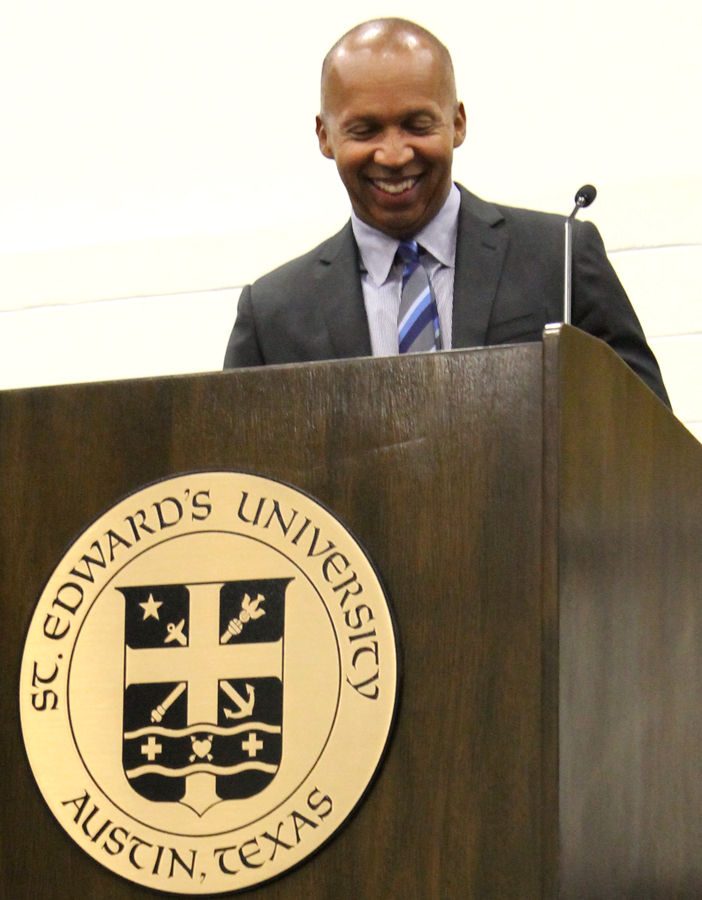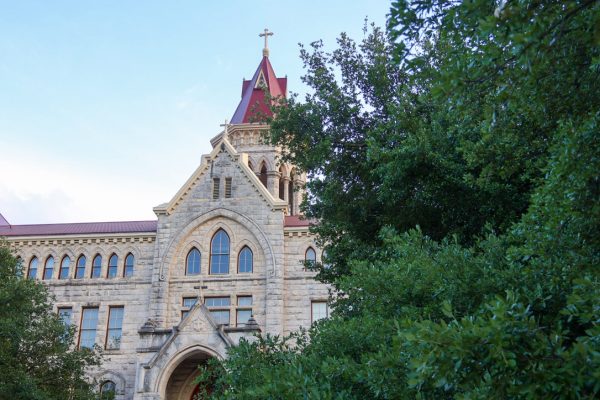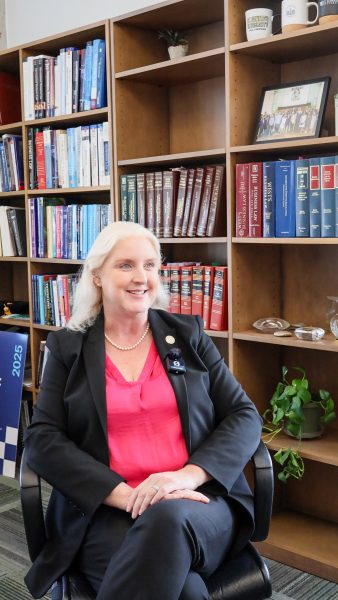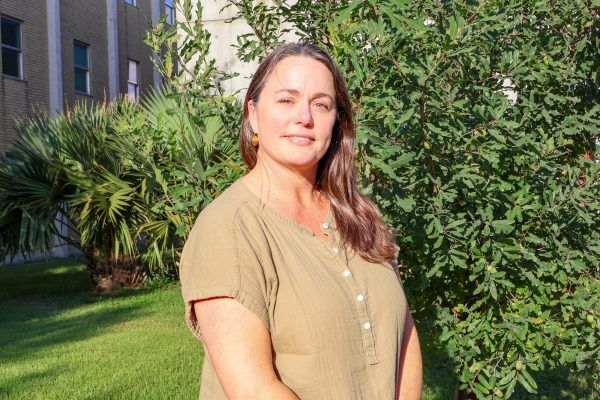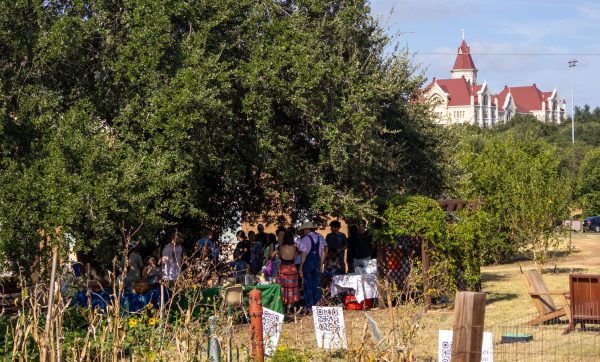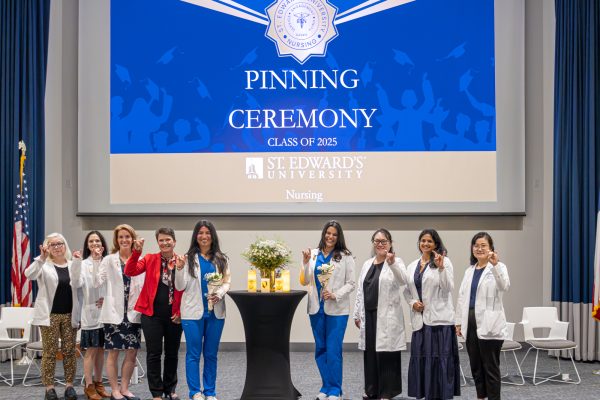Public defendant, author Bryan Stevenson speaks at SEU
On Sept. 23, Bryan Stevenson traveled from Alabama to St. Edward’s University to address the school’s Freshman Studies Program, which featured his book: “Just Mercy: A Story of Justice and Redemption” as its center-piece.
In his book, Stevenson, a Harvard Law School graduate and New York Times bestselling author, details some of his most heartbreaking legal cases and researched statistics, proving the criminal justice system is failing millions in the nation.
After graduating from Harvard Law School, Bryan Stevenson founded the Equal Justice Initiative in his native state of Alabama. The non-profit organization helps those who are most desperate for legal representation — people suffering from mental illness, disability, poverty and racism.
Stevenson is now the award-winning executive director of EJI and a law professor at New York University. Between flights from the classroom and courtroom, Stevenson wrote the book over the course of two years.
“I was very ambivalent about whether to take the time to write a book because we have a long line of people who want legal help,” Stevenson said. “But I’ve been pleasantly surprised by how responsive people are, and how a book can just get to places that you can’t get to by yourself.”
The Freshmen Studies committee takes “this responsibility very seriously,” as they consider “what book we are going to give the students before they get here that is really going to announce who we are as a university” Director of Freshman Studies and Assistant Professor Alex Barron said.
The goal is to select a common text that would grasp students to read it, even in the summer.
Barron highlighted she wanted students to particularly read “Just Mercy” because the theme ties in with St. Edward’s mission statement of “confront[ing] the critical issues of society and to seek justice and peace” and ties in with the recent events of alleged police violence in Ferguson, Mo., New York and Cleveland that involve inequality in the criminal justice system.
Throughout his speech, Stevenson focused on four steps that can be used to change the world — get into proximity, change the narrative, protect your hope and be willing to experience discomfort.
“We have too many policy-makers and politicians trying to solve problems from a distance, and because they are from a distance, they don’t see the details of these problems up close. When you get proximate, things will change,” Stevenson said.
Stevenson had family ties to slavery and as a child, attended colored-only schools in Alabama, until “lawyers came into our community and got proximate with poor black kids like me. Because of their intervention, public schools opened up.” This led Stevenson to high school, then college and finally Harvard Law.
“People are refusing to acknowledge the severity of prejudice right now. I get into heated conversations with [friends] about the reason why minorities are in jail is not because of their culture, it’s because of the disposition society’s view of minorities has put them in,” freshman Hannah Asis said, echoing Bryan Stevenson in saying the narrative regarding minorities needs to change.
“Injustice prevails where hopelessness exists… Hope is what will get you to speak when other people are silent,” Stevenson said, mentioning that we should remain hopeful about the “things we can do, and to do better than we have already done.” When working as an activist or protesting, “you have to believe the people you are in front of are capable of something more just than what you are seeing. And that requires hope.”
Although most of the 1,000 guests in attendance for the lecture were from the St. Edward’s community, Eileen Carbin is a white, elderly woman living in the Austin area.
“When he talked about Germany and where they have marks where Jewish families were collected and taken away [to concentration camps], the Germans are acting more like we’re supposed to act. But not us. We hide it, we deny it. We don’t want to talk about it. But Germany and South Africa they admitted [their mistakes], are ashamed of it, and are doing something about it,” Carbin.
“You can’t face injustice by doing only what is comfortable and convenient,” Stevenson said. We can’t judge a community’s well-being by looking “at how we treat the rich and the powerful and the privileged. We have to judge a community by how it treats the poor, the incarcerated, and condemned.”
“I’ve never seen a standing ovation [at a Freshman Studies lecture] before,” Barron said, “I felt so on the edge of my seat while he was talking… and everyone was so focused on him. I feel that speaks to his power as a speaker and the importance of his message.”
In continuation with the “Just Mercy” theme, Freshman Studies has collaborated with St. Edward’s alumna and nationally-exhibited artist Jenn Hassin to create a project called “In Equality In Justice,” which will be made completely by St. Edward’s students throughout the semester. For more details regarding this social justice system project, visit [email protected].
Follow me @Amanda620DG


